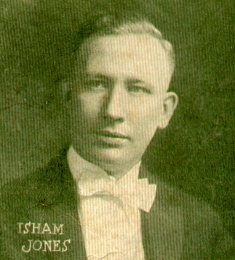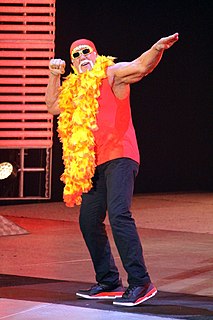Related Research Articles

Christmas music comprises a variety of genres of music on a variety of topics, religious and otherwise, regularly performed or heard around the Christmas season. Christmas carols remain a large part of the popular Christmas song canon, with numerous titles being added in the 1930s, 1940s, and 1950s in the United States. Subject matter ranges from the nativity of Jesus Christ, to gift-giving and merrymaking, to mythical figures surrounding the holidays such as Santa Claus and his elves. Many songs simply have a winter or seasonal theme, or have been adopted into the canon for other reasons.

Bernard Herrmann was an American composer best known for his work in composing for motion pictures. As a conductor, he championed the music of lesser-known composers.

Dimitri Zinovievich Tiomkin was a Russian empire-born American film composer and conductor. Classically trained in St. Petersburg, Russia before the Bolshevik Revolution, he moved to Berlin and then New York City after the Russian Revolution. In 1929, after the stock market crash, he moved to Hollywood, where he became best known for his scores for Western films, including Duel in the Sun, Red River, High Noon, The Big Sky, Gunfight at the O.K. Corral, and Last Train from Gun Hill.

Isham Edgar Jones was an American bandleader, saxophonist, bassist and songwriter.

Axel Stordahl was an American arranger who was active from the late 1930s through the 1950s. He is perhaps best known for his work with Frank Sinatra in the 1940s at Columbia Records. With his sophisticated orchestrations, Stordahl is credited with helping to bring pop arranging into the modern age.
The Voice of Firestone is a long-running radio and television program of classical music. The show featured leading singers in selections from opera and operetta. Originally titled The Firestone Hour, it was first broadcast on the NBC Radio network on December 3, 1928 and was later also shown on television starting in 1949. The program was last broadcast in 1963.
John Linton Gardner, CBE was an English composer of classical music.
The Warsaw Concerto is a short work for piano and orchestra by Richard Addinsell, written for the 1941 British film Dangerous Moonlight, which is about the Polish struggle against the 1939 invasion by Nazi Germany. In performance it normally lasts just under ten minutes. The concerto is an example of programme music, representing both the struggle for Warsaw and the romance of the leading characters in the film. It became very popular in Britain during World War II.

Music in professional wrestling serves a variety of purposes. The most common uses of music in professional wrestling is that of the entrance theme, a song or piece of instrumental music which plays as a performer approaches the ring. After a match, the entrance theme of the victor will normally be played as they exit the ring. Entrance themes are used to alert the audience to the immediate arrival of a wrestler, and to increase anticipation.
The various film and theatre appearances of the Superman character have been accompanied by musical scores.

Eleanor Steber was an American operatic soprano. Steber is noted as one of the first major opera stars to have achieved the highest success with training and a career based in the United States.
Robert John Lurtsema was a public radio broadcaster.

Richard Alexander Crooks was an American tenor and a leading singer at the New York Metropolitan Opera.
Knoxville: Summer of 1915, Op. 24, is a 1947 work for voice and orchestra by Samuel Barber, with text from a 1938 short prose piece by James Agee. The work was commissioned by soprano Eleanor Steber, who premiered it in 1948 with the Boston Symphony Orchestra under Serge Koussevitzky. Although the piece is traditionally sung by a soprano, it may also be sung by tenor. The text is in the persona of a male child.
"Charley, My Boy" is a song with music by Ted Fio Rito and lyrics by Gus Kahn. The Russo-FioRito Oriole Orchestra introduced the song in 1924. The most popular recording was released by Eddie Cantor. The sheet music was published for voice and piano by J. Albert & Son.

By the Sleepy Lagoon is a light-orchestral valse serenade by British composer Eric Coates, written in 1930. In 1940 American songwriter Jack Lawrence added lyrics with Coates' approval; the resulting song, "Sleepy Lagoon", became a popular-music standard of the 1940s.
Idabelle Smith Firestone was an American composer and songwriter.
Leonid Dimitrievitch Malashkin was a Russian composer and conductor. Though he wrote a few works in larger forms, he is today chiefly remembered for his romances, particularly "Oh, Could I But Express in Song".
Clara Edwards was an American singer, pianist, and composer of art songs. She also used the pseudonym Bernard Haigh.
References
- ↑ "If I Could Tell You". The LiederNet Archive. Retrieved June 21, 2010.
- ↑ "The Voice of Firestone (music)". classicthemes.com. Retrieved June 21, 2010.
- ↑ Dunning, John (1998). On the Air: The Encyclopedia of Old-Time Radio . Oxford University Press, USA. p. 705. ISBN 9780195076783 . Retrieved 30 September 2017.
Voice of Firestone.
- ↑ "Songs We Forgot to Remember - John Aler". Delos Music. Retrieved 1 February 2018.